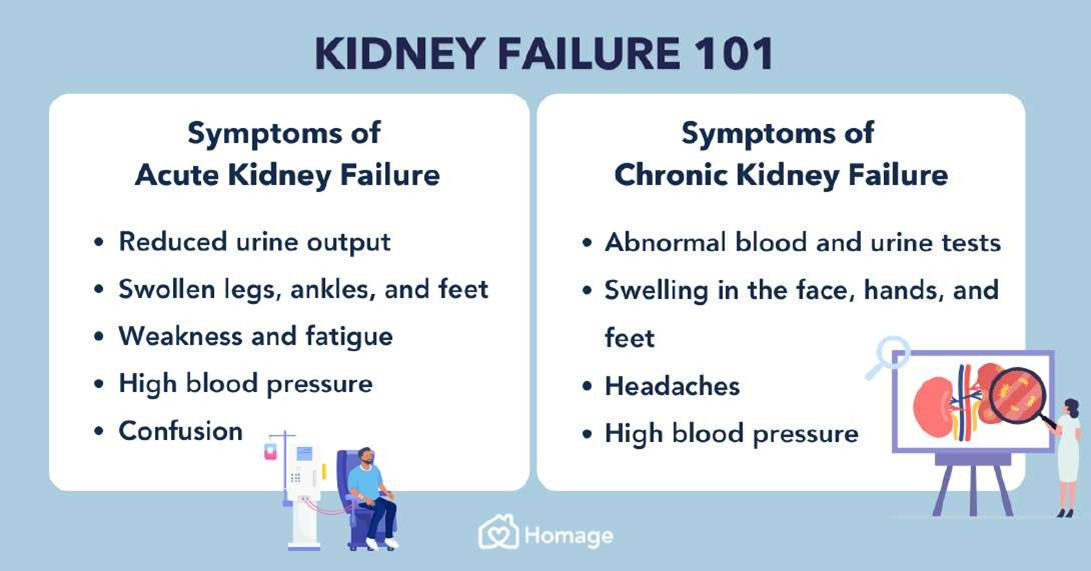A nurse is reviewing laboratory findings for four clients. Which of the following clients has manifestations of acute kidney injury?
Hemoglobin 16 g/dL
BUN 15 mg/dL
Serum potassium 4.5 mEq/L
Serum creatinine 6 mg/dL
The Correct Answer is D
Choice A reason: A hemoglobin level of 16 g/dL is within the normal range and does not indicate acute kidney injury.
Choice B reason: A BUN level of 15 mg/dL is also within the normal range and does not suggest acute kidney injury.
Choice C reason: A serum potassium level of 4.5 mEq/L is within the normal range and is not indicative of acute kidney injury.
Choice D reason: A serum creatinine level of 6 mg/dL is significantly elevated and indicates impaired kidney function, which is a hallmark of acute kidney injury.

Nursing Test Bank
Naxlex Comprehensive Predictor Exams
Related Questions
Correct Answer is B
Explanation
Choice A reason: Hyperkalemia refers to high potassium levels, which may not directly cause shortness of breath and swelling.
Choice B reason: Hypervolemia, or fluid overload, is likely the cause of the client's symptoms, including shortness of breath, swelling, crackles in the lungs, and elevated blood pressure.
Choice C reason: Hypovolemia, or fluid deficit, would not typically present with swelling and crackles in the lungs.
Choice D reason: Hyponatremia refers to low sodium levels, which may not directly cause the symptoms described.
Correct Answer is ["50"]
Explanation
Step 1: The total amount of phenytoin required per dose is 250 mg.
Step 2: Each 5 mL of oral solution contains 25 mg of phenytoin.
Step 3: To find out how many mL are needed, we divide the total amount required by the amount in each 5 mL of oral solution. So, (250 mg ÷ 25 mg/5 mL).
Step 4: The result is 50 mL.
So, the nurse should administer 50 mL per dose. This is already a whole number, so no rounding is necessary.
Whether you are a student looking to ace your exams or a practicing nurse seeking to enhance your expertise , our nursing education contents will empower you with the confidence and competence to make a difference in the lives of patients and become a respected leader in the healthcare field.
Visit Naxlex, invest in your future and unlock endless possibilities with our unparalleled nursing education contents today
Report Wrong Answer on the Current Question
Do you disagree with the answer? If yes, what is your expected answer? Explain.
Kindly be descriptive with the issue you are facing.
